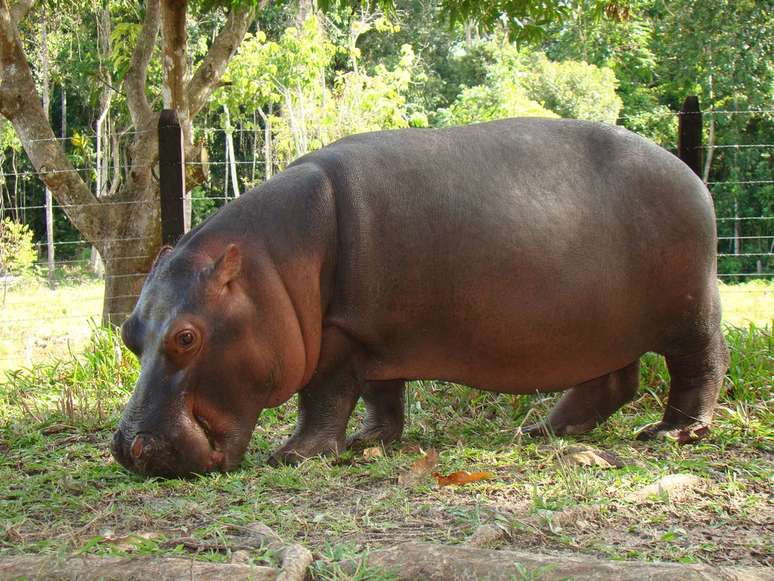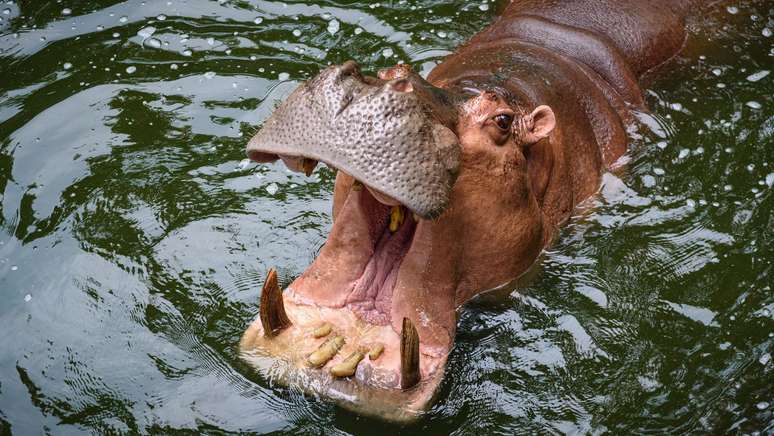Colombia’s 166 hippos, descendants of those brought by Pablo Escobar, could be sent to international zoos, neutered or euthanized
In Colombia, efforts to reduce hippopotamus numbers They are expected to roam the country causing numerous problems, including neutering, relocation to zoos in other countries, and even euthanasia. There are 166 animals that descend from a population imported by the famous drug trafficker Pablo Escobar in the 1980s.
- Hippos recognize voices and use feces to repel enemies
- A 2-year-old boy survives after being partially swallowed by a hippopotamus
The work is the responsibility of the Colombian government. The country’s Environment Minister, Susana Muhamad, highlights the sterilization of 20 specimens due to unsuccessful population control efforts by experts over the years. The spread of hippos began after Escobar’s death in 1993, when his hacienda’s private zoo, called Nápoles, opened and released the creatures into the wild.
Colombia and hippos
Colombia has very fertile swamps and regions in the Antioquia region, which provide perfect conditions for the large mammals, native to Africa, to thrive and reproduce. Growing in numbers in the Magdalena, the country’s main river, they were declared an invasive species in 2022, leading to increased efforts to contain them.

Minister Muhamad explains that he is negotiating with other countries to export the animals and that he will have to wait for authorization from foreign environmental authorities before starting the procedure. Euthanasia appears only as a last resort if other approaches are not effective. In Colombia, hippos pose a threat to animals and humans, weighing up to three tons and killing around 500 people worldwide every year.
In Africa they kill more than crocodiles, being among the most dangerous creatures in the world. The Hacienda Nápoles, where the hippos live Pablo Escobar, has an area of 22.3 km² and was given to the poor populations of the region by the Colombian government after the death of the cocaine magnate, becoming a theme park. Since their capture was difficult, the animals ended up being left free, and it was not expected that they would become so dangerous.
They have no predators in the country and it is estimated that the population could reach 1,000 by 2035 if adequate measures are not taken. Some activists disagree with government initiatives, saying sterilization causes suffering to animals and poses a danger to responsible veterinarians. Communities on the Magdalena River were recently attacked, with animals invading the school grounds, but there were no casualties at the time.
Source: BBC
Trends on Canaltech:
- Stability launches artificial intelligence to create 3D models from text commands
- The 50 funniest Google Assistant jokes
- Xiaomi 14 arrives with HyperOS and the brightest OLED in the world
- Recovery from back pain actually begins in the brain
- Formula 1 | Find out how much the most expensive ticket for the Brazilian GP costs
- Sound of Freedom | Why has a Christian film become the subject of controversy?
Source: Terra
Rose James is a Gossipify movie and series reviewer known for her in-depth analysis and unique perspective on the latest releases. With a background in film studies, she provides engaging and informative reviews, and keeps readers up to date with industry trends and emerging talents.





![Such a wonderful sun in advance: Summary of the Saturday Episode on August 23, 2025 [SPOILERS] Such a wonderful sun in advance: Summary of the Saturday Episode on August 23, 2025 [SPOILERS]](https://fr.web.img3.acsta.net/img/6a/8f/6a8ffa577eaaf28890f00c4dbec8859c.jpg)
